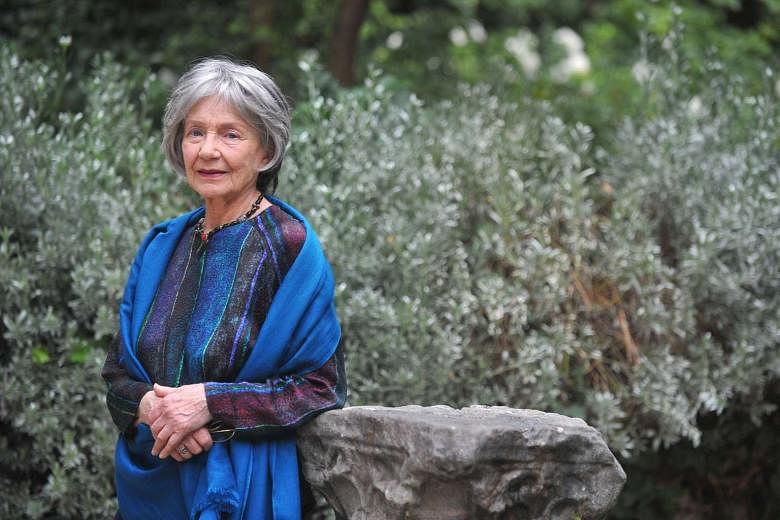WASHINGTON • Emmanuelle Riva, a French actress whose most memorable roles came more than 50 years apart, first in the 1959 classic Hiroshima Mon Amour, then in 2012's Amour, died last Friday at a medical facility in Paris. She was 89.
Her agent, Ms Anne Alvares Correa, confirmed the death to the Associated Press but did not specify a cause.
Riva was one of the most important film actresses in what became known as the French New Wave of the 1950s and 1960s, first gaining acclaim in director Alain Resnais' Hiroshima Mon Amour (1959).
She played a French actress reflecting on an affair she had with a Japanese architect (Keiji Okada) in the wake of the destruction of Hiroshima by an atomic bomb near the end of World War II.
It became a cinematic landmark and was praised as one of the most beautiful films ever made.
Much of its power came from Riva's riveting performance. With a regal presence and large, expressive eyes, she recited lines from a poetically spare script by novelist Marguerite Duras, as she mused on love, war and memory.
She appeared in several other major films in the 1960s, including Leon Morin, Priest (1961), in which she played a wartime widow who falls in love with a priest, played by Jean-Paul Belmondo. The film was considered scandalous for its time.
In 1962, she had the title role in director Georges Franju's Therese, playing an unhappy wife accused of poisoning her provincial husband.
Notoriously selective in her roles, Riva resisted popular fare and never made a film in Hollywood or in English. She continued to appear on stage in France and had occasional film roles, including one as Juliette Binoche's mother in director Krzysztof Kieslowski's acclaimed Three Colors: Blue in 1993.
Yet she remained something of a film-buff secret until Austrian director Michael Haneke asked her to appear in Amour. She was 85 when the film was released in 2012.
"I immediately sensed that there was something extraordinary about the script," she told The New York Times in 2013.
The French-language film is about an ageing married couple, both music teachers, facing their inevitable decline.
Riva's character has a stroke and becomes increasingly incapacitated, sometimes humiliatingly so. Her husband, played by Jean-Louis Trintignant, feeds her by the spoonful, and when she spits her food in his face, he slaps her in exasperation.
Her performance was a display of remarkable subtlety, often without the use of words. She seemed to shrink in size throughout the film, as her eyes dimmed and her features lost their vitality.
Amour won the top prize at the Cannes Film Festival and received the Academy Award for Best Foreign Film. Riva won acting honours around the world, including the French Cesar award, and in 2013, became the oldest nominee, male or female, for a best-acting Oscar.
During the two months in which Amour was filmed, Riva lived in her dressing room at a studio outside Paris. It was part of her immersive approach to acting.
"Abandon yourself and give yourself over," she told the Los Angeles Times in 2012. "We don't play act - it's not a game. It's life."
Paulette Germaine Riva was born on Feb 24, 1927, in Chenimenil, France. Her father was a sign painter.
By the age of six, she wanted to be an actress, but her parents discouraged her aspirations and she became an apprentice to a seamstress. She appeared in regional plays before winning a scholarship to a Paris acting school when she was 26.
She never married and lived for decades in a fourth-floor Paris apartment without an elevator. She did not own a television.
In addition to acting in more than 50 films and dozens of plays, she wrote three volumes of poetry. In 2009, she published a book of photographs she had taken while on location in Japan for Hiroshima Mon Amour.
After her late-career renaissance with Amour, she took on several other film roles, some of which have yet to be released.
"Cinema is the art of the instant," she said in 2012. "It's in the moment. We practise and practise to find that instant of total liberty... Shhhh... It's hard!"
WASHINGTON POST

